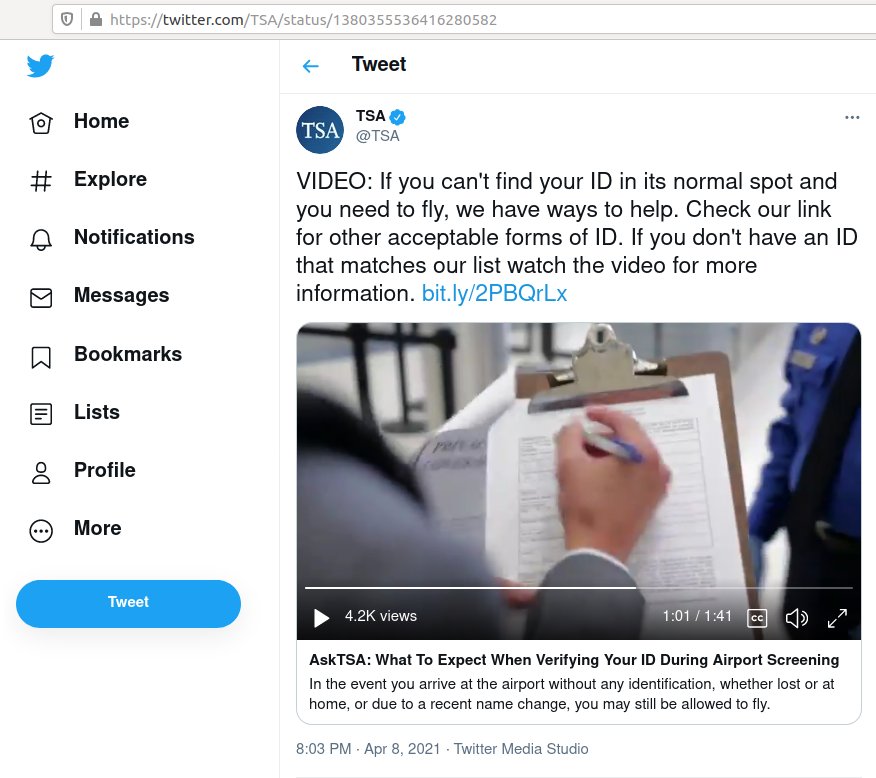DHS extends REAL-ID airport enforcement “deadline” again
The Department of Homeland Security has once again postponed its self-proclaimed “deadline” for enforcement of the REAL-ID Act at airports, this time from October 1, 2021, to May 3, 2023.
The latest postponement proves, once again, that the dates of the DHS threats to begin “enforcing” the REAL-ID Act at airports are as changeable as the dates in any of the threats made by extortionists or kidnappers. Today’s DHS press release is more like a ransom note than a legal notice: “If you get an ID we deem acceptable, we might not harass you as much when you fly, and we might allow you to exercise your right to travel.”
It remains unclear what enforcement of the REAL-ID Act at airports might mean. No law requires air travelers to have any ID, and the REAL-ID Act doesn’t change that. The Transportation Security Administration recently posted a video showing how you can fly without ID. But today’s DHS press release implies that the DHS is contemplating denying passage through TSA checkpoints at airports to travelers who don’t have, don’t carry, or don’t chose to show ID credentials that the DHS and TSA deem “compliant” or “acceptable”:
Beginning May 3, 2023, every air traveler 18 years of age and older will need a REAL ID-compliant driver’s license or identification card, state-issued enhanced driver’s license, or another TSA-acceptable form of identification at airport security checkpoints for domestic air travel.
Since this is a press release, not a bill proposing new legislation or a notice of proposed new regulations, it doesn’t need to say what legal basis there might be for this claim. But so far as we call tell, there is none.
The DHS recently tried to get Congress to exempt its implementaton of the REAL-ID Act from standard Federal rules notice and approval. But Congress turned down the DHS proposal for exemption of REAL-ID implementation from the Administrative Procedure Act and the Paperwork Reduction Act. The DHS has not yet begun any of the notice and approval procedures which would be required before it could impose new restrictions or requirements for air travel on the basis of the REAL-ID Act.
We expect that today’s press release will be followed by a formal rulemaking notice that merely changes the REAL-ID threat date. But such a rulemaking will neither clarify what action is really being threatened (i.e what the TSA will really do when travelers continue to show up at TSA checkpoints without “compliant” ID), clarify what the purported legal basis would be for that action, nor, in itself, create a legal basis for any such action.
Today’s DHS press release says that the change in the “deadline” will give states and individuals more time to “comply” with the REAL-ID Act. But compliance with the REAL-ID Act was, and still is, optional for both states and individuals. What the postponement by the DHS of its self-imposed “deadline” really does is give the DHS itself more time to come up with a legal justification for its threatened actions — or to withdraw its baseless threats. It also gives Congress more time to repeal the REAL-ID Act.
Don’t be intimidated by DHS and TSA threats. Regardless of what self-imposed DHS deadlines come and go, with how many more postponements, you will still have the same right to travel without ID that you have now.
